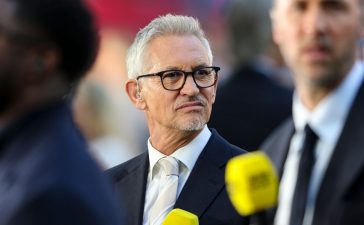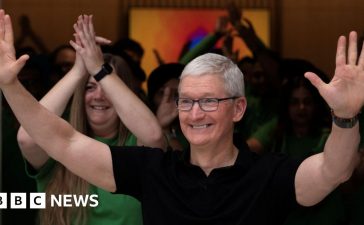Tony Bunyan, who has died aged 83, was a pioneering champion of civil liberties whose modesty combined with a passionate and dogged commitment earned him huge respect among a wide network of those concerned about the growth of unaccountable police forces and security and intelligence agencies in Britain and the EU.
With a keen understanding of how the state can shape and control society, in 1981 Bunyan founded Statewatch, where over more than three decades he monitored the state’s activities, published the results of investigations, and organised conferences that provided a voice for marginalised groups.
Statewatch grew out of State Research, which Bunyan led from 1977 to 1981, highlighting surveillance by state agencies and the lack of democratic oversight over its secret services. Bunyan dedicated the final years of his life to indexing, cataloguing, and curating his personal library and archive of protest movements, and the role of the state agencies in combating dissent.
He wanted his collection to be used to inform, inspire and agitate a future generation of activists around the world, calling it The Shape of Things to Come, taken from the title of the sci-fi novel by HG Wells, as was his report on the EU, published in 2009. For Bunyan, the title served as a warning that we need to make sense of the past to keep fighting for a just world.
He was born in Kenton, north London, to Marie (nee Newport), a hospital social worker, and Denys Bunyan, who worked for the Shell oil company. Aged four, as his mother protected him under the stairs, Tony suffered a broken arm when a German doodlebug exploded nearby.
Educated at St George’s college, Weybridge, he then took a job with Unilever for a short time before, as he later explained, he decided he did not want to spend the rest of his Iife in a suit sitting on a train to London to work in an office. Instead, he attended the Central School of Speech and Drama, where he took a course in stage management and production (1960-62).
He began his political life in that decade with the then radical Young Liberals, and became their national organiser. One of those who enthusiastically signed up was Hilary Wainwright, now co-editor of the socialist magazine Red Pepper. She recalled how Bunyan rescued her from a mundane job in the Liberal party’s then headquarters in Smith Square, in Westminster. Bunyan was working in the building’s attic, encouraging prospective Young Liberals by adopting from American students such slogans as “We Want a Revolution” and “Make Love Not War”, and promoting policies that included leaving Nato and workers having control of companies.
In 1971 Bunyan became news editor of Time Out, then a radical publication. It was heavily involved in reporting the ABC trial when Crispin Aubrey, a Time Out reporter, John Berry, a former soldier, and the investigative journalist Duncan Campbell were charged with breaching the Official Secrets Act for exposing the activities of the intelligence-gathering centre GCHQ. Bunyan subsequently played a prominent role protesting against the deportation of Mark Hosenball, an American journalist at Time Out, and Philip Agee, a former CIA officer who also worked with the magazine exposing some of the US agency’s activities.
Under Bunyan’s news editorship, Time Out was influential in publishing information about underground movements, human rights and other issues relating to the counter culture of the time. He gave front-page coverage to the Angry Brigade trial, where four people were convicted of bombing property in a campaign protesting against British support, among other policies, for the Vietnam war and internment without trial in Northern Ireland.
In 1972, Bunyan returned to study, obtaining a first-class degree in sociology at North London Polytechnic. While there, he wrote a groundbreaking book, The History and Practice of the Political Police in Britain (1976), which influenced subsequent generations of critical criminologists. He himself was influenced by the lecturer and sociologist Colin Prescod, chair of the Institute of Race Relations, and its director, Ambalavaner “Siva” Sivanandan. Last year, Bunyan was appointed the institute’s honorary president.

In the early 1980s Bunyan became head of the Greater London council’s police committee support unit, and in that role campaigned to make the Metropolitan police more accountable to the people of London – a role, it was recently revealed, that led Bunyan and his colleagues on the GLC to be spied on by the police special branch. He oversaw a budget that enabled local groups to monitor the police, and support those in the community seen as victims of institutional racism.
Bunyan’s work was widely recognised, and in 1998 earned Statewatch a Campaign for Freedom of Information award for its work on fighting for EU openness. In 2011, he was awarded Liberty’s “Long Walk” human rights award. Among other publications, in 2012 he edited The War on Freedom and Democracy: Essays on Civil Liberties in Europe.
A fervent supporter of Arsenal, he loved his garden in Dalston, east London, tending his roses in particular, and enjoyed holidays on Greek islands, where he worked with local activists and organisations supporting refugees in Lesvos.
He is survived by his longterm partner, Ann Singleton, a reader in migration policy at Bristol University, and his brother, Chris.











